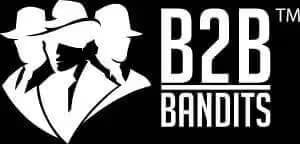
Editor’s note: If you’ve been following along, then you already suspect what I’m about to tell you, that this is another excerpt from our work in progress. Why else would it have a note from Seth at the head of the article, right? Right.
Glad you’re paying attention. -Seth
So you’ve done your homework, asked fifteen kazillion friends about your big idea, and are convinced that you have a business. Well, you’ll have a business when you get your first customer. Only then are you in business.
Before we dive into all the tactics you can use to unearth your first customer, let’s clear a few things up:
Real Customers Pay with Real Money – no trades, equity agreements, etc… Those can be useful, but customers by definition generate revenue for your business.
Customers vs. Clients vs. [insert noun here] – the definitions here truly don’t matter. The only important thing to distinguish, is that when working larger companies, that you’ll likely have multiple customer/clients, i.e. the woman cutting the check, and the man receiving the service / product.
The Amount of Money Customers Spend with You DOES NOT MATTER – some of my best clients have only spent a few hundred bucks with me in the past 5 years combined. But they referred me $25K+ in new business.
So how do you get your first customer?
1) IDENTIFY THE LOW-HANGING FRUIT
- Friends – ya, ya, I know. ‘You don’t do business with friends’ … for some owners with certain kinds of friends, that’s true. It’s a horrible idea. But in my business (and I’m hoping eventually with yours) your friends become your clients, and your clients become your friends. That is the essence of a human business.
- Family – again, could be a bad idea. When working with family try to keep the project size / product spend small. In my experience working with family, I’ve found that it was more important that they thought it was worth real money, not the total amount.
- Former customers – from your previous / other job. As long as you aren’t flagarantly violating a non-compete agreement, or stepping on the toes of a potential referral source, go for it. Humans buy from human … if you already invested the time into earning their trust, then they should be willing to buy *anything* your recommend.
- Peers – in the countless hours spent in lunch breaks and procrastination-driven shenanigans, co-workers either become friends or at minimum, someone that’s easy to have a conversation with … and good conversation is the keystone to earning your first customer.
2) START CONVERSATIONS WITH ALL OF THEM
If I were to list off all of the steps required in building and growing a business in sequence, this would be the task that EVERYONE screws up the first time around. Until you’ve put in some heavy repetitions off that first conversation, it will come off as salesy, or weak, or overbearing, or confusing, or spammy, or uncomfortable.
Here’s some guidelines to help take off some of those rougher edges:
- CHOOSE THEIR MEDIUM … if you prospective customer communicates with you via LinkedIn Messages, then use that. If texting, then use that. If in-person, then use that.
- DEFINE WHAT’S IN IT FOR THEM … this can take many forms: lively conversation, satiating curiosity about ‘what you’ve been up to these past 4 years’, they want to pick your brain on one of their ideas, they want to connect with someone in your network. Uncovering human motivation is art and science – avoid over-thinking it, just remember that have to have a good reason to talk to you – even your mom.
- THE GOAL IS RELATIONSHIP … if you open up conversation with a prospect with the sole intent to make a sale, then you will fail, or succeed weakly. The absolute best outcome of any business conversation is creating / strengthening the relationship where that person becomes your biggest fan and top referrer.
- BE FORTHRIGHT … even the most dense people can detect an incoming sales pitch. If they ask, “why should we talk?” sometimes the best approach is just to come clean. “Well.
- DON’T SELL ANYTHING IN THAT FIRST CONVERSATION … “Interact first. Sell second.” – Seth Godin
- BE HUMAN … nobody cares about “solutions” that you can offer them. They care about you caring about them. I’ve never closed a deal that didn’t include some story-swapping in the initial conversations.
- BE VULNERABLE … you cannot expect someone to trust you with their money, buying something that nobody has ever bought before, when you can’t open up to them. If your product was created out of a ridiculous and highly embarrassing incident, then tell them that story. You open up, then they will open up. And when they open up, you can discover what motivates them to open their wallets.
- BE SINCERE … if you can’t find something sincere to say during conversation, then you shouldn’t be talking in the first place.
A good default approach, “Hey, Jim. Nate here. So I finally sucked it up and started that ___________ business I’ve been toying with for years. I’d love to get your insight on this – you know, sanity check it a bit. I’ve got some time on Thursday mid-morning. Does that work for you? Thanks in advance, and please let me know how I can return the favor. ”
If it goes well, they will declare, “I can use that … sign me up” … or better yet, “I’d focus more on XYZ. Do that, and I’ve got about 4 folks that could use that.”
That’s all for this week. There’s definitely more to this chapter, concerning how you go from conversation to sale, though I plan on omitting it from the blog. Maybe I’ll post it if you ask really nicely in the comments. Otherwise, look forward to next week’s post, which will be about whatever we feel like. Thanks for reading!






